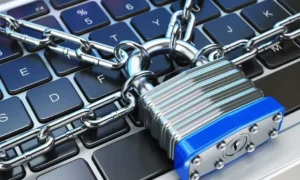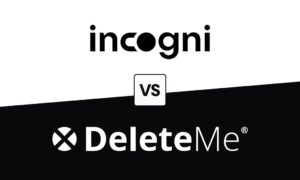
In today’s digital landscape, keeping your online activities safe is more important than ever. With cyber threats lurking around every corner, using the best VPN can be a game-changer. A Virtual Private Network (VPN) not only hides your IP address but also encrypts your internet traffic, making it much harder for hackers and snoopers to access your data. Whether you’re browsing, streaming, or working remotely, a reliable VPN can provide the protection you need to feel secure online.
How These Top-Rated VPNs Keep You Safe Online
Top rated VPNs are essential for maintaining your security in today’s digital world. They work by creating a secure, encrypted connection between your device and the internet, shielding your data from prying eyes. Let’s explore how these VPNs achieve this.
Understanding VPN Encryption
VPN encryption is the cornerstone of online security. It transforms your data into an unreadable format, protecting it from hackers and eavesdroppers. The best VPNs employ advanced encryption standards, such as AES-256, which is virtually unbreakable. This level of encryption ensures that your sensitive information, like passwords and financial details, remains confidential. Think of it as a digital lockbox for your internet traffic. Encryption is a must-have.
Hiding Your IP Address
Your IP address is like your device’s home address on the internet. It can be used to track your location and browsing activity. VPNs mask your real IP address by routing your traffic through a server in a different location. This makes it much harder for websites and third parties to identify you. When you connect to a VPN, websites only see the IP address of the VPN server, not your actual IP. This is a simple yet effective way to enhance your online anonymity. Consider using a PureVPN service to hide your IP address.
Benefits of a No-Logs Policy
A no-logs policy is a commitment from a VPN provider not to track or store any of your online activity. This means that even if the VPN server is compromised, there’s no data to be exposed. A strict no-logs policy is a crucial indicator of a VPN’s commitment to privacy. Look for VPNs that have had their no-logs policies independently audited to ensure transparency and trustworthiness. It’s about trusting that your VPN provider isn’t keeping tabs on you.
A VPN with a solid no-logs policy ensures that your browsing history, connection times, and other sensitive data are never recorded. This provides an extra layer of privacy and peace of mind, knowing that your online activities remain your own.
Enhancing Your Online Privacy
Improving Anonymity While Browsing
Using a VPN is a pretty good way to keep your browsing habits to yourself. It’s like putting on a digital mask so websites and advertisers can’t easily figure out who you are. A VPN hides your real IP address, making it harder to track your location and online activity. Think of it as a basic step to stay a bit more hidden while you surf the web. It’s not perfect, but it’s a start.
Preventing ISP Tracking
Your Internet Service Provider (ISP) can see almost everything you do online. They know what websites you visit, what you download, and how long you spend on each site. A VPN can stop this. By encrypting your internet traffic, a VPN makes it much harder for your ISP to monitor your online activities. This is especially useful if you don’t want your ISP selling your data to advertisers or government agencies.
Avoiding Targeted Advertisements
Tired of seeing ads that seem to follow you around the internet? VPNs can help with that too. Targeted ads rely on tracking your browsing history and location. When you use a VPN, your real IP address is hidden, making it more difficult for advertisers to build a profile about you. While it won’t eliminate all ads, it can reduce the number of ads that are specifically tailored to your interests and browsing habits.
Using a VPN is not a magic bullet for online privacy, but it’s a solid step in the right direction. Checking out the best free VPN Reddit threads can help you find trustworthy options that still respect your privacy. It adds a layer of protection that can make it harder for companies and individuals to track your online activities. It’s all about taking control of your data and making informed choices about your online presence.
Securing Your Internet Connection
Protection on Public Wi-Fi
Okay, so you’re at a coffee shop, airport, or library, and you need to hop on the Wi-Fi. It’s free, it’s convenient, but it’s also a security nightmare. Public Wi-Fi networks are often unsecured, meaning anyone can potentially snoop on your data. A VPN creates a secure, encrypted tunnel for your internet traffic, making it much harder for hackers to intercept your information. Think of it as putting a lock on your data before sending it out into the world. It’s not foolproof, but it’s a heck of a lot better than nothing. To install a VPN app is the first step to protect your data.
Shielding Against Hackers
It’s not just public Wi-Fi you need to worry about. Hackers are getting more sophisticated, and they’re always looking for ways to steal your data. A VPN can help protect you from various types of attacks, such as man-in-the-middle attacks, where a hacker intercepts the communication between you and a website. By encrypting your data, a VPN makes it much harder for hackers to read and use your information, even if they do manage to intercept it. It’s like scrambling the letters in a message so that only the intended recipient can understand it.
Maintaining Data Integrity
Data integrity means ensuring that your data remains complete and unaltered during transmission. A VPN helps maintain data integrity by using encryption and secure protocols. This prevents malicious actors from tampering with your data while it’s in transit. Imagine you’re sending a package, and you want to make sure no one opens it and messes with the contents along the way. A VPN acts like a tamper-proof seal, ensuring that your data arrives at its destination exactly as you sent it.
Using a VPN is not a magic bullet, but it’s a solid step towards securing your internet connection. It adds a layer of protection that can significantly reduce your risk of being hacked or having your data stolen. It’s a tool in your cybersecurity arsenal, and it’s one that’s becoming increasingly important in today’s digital world.
Here are some ways a VPN helps maintain data integrity:
- Encryption: Scrambles your data, making it unreadable to unauthorized parties.
- Secure Protocols: Uses protocols like OpenVPN or WireGuard, which are designed to be secure and reliable.
- Authentication: Verifies the identity of the server you’re connecting to, preventing man-in-the-middle attacks.
Choosing the Right VPN for Your Needs
Okay, so you’re thinking about getting a VPN. Cool! But with so many options, how do you pick the right one? It can feel overwhelming, but breaking it down makes it way easier. It really comes down to figuring out what you need it for and what you’re willing to spend.
Evaluating Speed and Performance
Let’s be real, nobody wants a VPN that makes your internet feel like dial-up. Speed is a big deal. Think about what you’ll be doing. Streaming in 4K? Gaming? You’ll need a VPN that can keep up. Some VPNs are faster than others, and it can even depend on which server you connect to. So, read reviews, check speed tests, and see what real users are saying. Don’t just take the VPN’s word for it.
Considering User Experience
Is the app easy to use? Does it make sense? You don’t want to spend hours trying to figure out how to connect. A good VPN should have a simple, intuitive interface. Look for things like:
- Easy server selection
- Clear settings
- Helpful tutorials or FAQs
- Responsive customer support
If the VPN is a pain to use, you’re less likely to actually use it, right?
Assessing Security Features
This is where things get serious. You’re getting a VPN for security, so make sure it actually delivers. Look for:
- Strong encryption (like AES-256)
- A kill switch (to cut off your internet if the VPN drops)
- DNS leak protection (to keep your IP address hidden)
- A solid no-logs policy (meaning they don’t track what you do online)
It’s important to remember that not all VPNs are created equal. Some might cut corners on security to save money, which defeats the whole purpose. Do your research and choose a VPN that takes security seriously.
Top VPN Services to Consider
Choosing a VPN can feel overwhelming with so many options available. Let’s break down a few top contenders, each with its own strengths.
NordVPN for Privacy
NordVPN is often praised for its robust privacy features. It’s a solid choice if keeping your online activities private is your top priority. They have a strict no-logs policy, meaning they don’t track or store your browsing data. NordVPN also offers features like double VPN, which routes your traffic through two servers for extra security, and Onion Over VPN, which integrates with the Tor network for enhanced anonymity. It’s worth checking out NordVPN’s features if you’re serious about privacy.
Surfshark for Security
Surfshark stands out for its focus on security and affordability. It offers a range of security features, including AES-256 encryption, a kill switch, and protection against DNS leaks. One of Surfshark’s biggest advantages is that it allows unlimited simultaneous connections, meaning you can protect all your devices with a single subscription. This makes it a great option for families or anyone with multiple devices. Plus, they often have VPN subscriptions at competitive prices.
ExpressVPN for Encryption
ExpressVPN is known for its fast speeds and strong encryption. It uses AES-256 encryption, which is considered one of the most secure encryption standards available. ExpressVPN also has a large server network, with servers in 105 countries, allowing you to bypass geo-restrictions and access content from around the world. They also have excellent, easy-to-use mobile VPN app options for their services. If you need ExpressVPN with servers in many countries, this is a good choice.
When selecting a VPN, consider what’s most important to you. Is it speed, security, privacy, or price? Each VPN has its own strengths and weaknesses, so it’s important to choose one that meets your specific needs. Checking out Reddit best VPN recommendations can help you see what real users are saying based on their own experiences.
Common Misconceptions About VPNs
It’s easy to get the wrong idea about VPNs. You hear a lot of claims, and sometimes it’s hard to separate fact from fiction. Let’s clear up some common misunderstandings.
VPNs Are Only for Streaming
One big misconception is that VPNs are just for accessing streaming services in other countries. Sure, a VPN can help you watch shows that aren’t available in your region, but that’s just one small part of what they do. VPNs are really about protecting your data and privacy online, no matter what you’re doing. It’s about more than just bypassing geo-restrictions.
All VPNs Provide the Same Security
Not all VPNs are created equal. Some VPNs offer top-notch encryption and security features, while others are pretty basic. Some might even log your data and sell it to third parties! It’s important to do your research and choose a VPN that has a solid reputation for security and privacy. Look for things like strong encryption, a no-logs policy, and a kill switch. Free VPNs often come with compromises in speed, security, or data allowances.
VPNs Can’t Protect Against All Threats
VPNs are great for protecting your data in transit, but they’re not a magic bullet. They can’t protect you from everything. For example, if you download malware or fall for a phishing scam, a VPN won’t save you. You still need to practice safe browsing habits and use common sense online. A VPN is one layer of security, but it’s not the only one. Remember that complete protection is a myth.
The Future of VPN Technology
The world of VPNs is always changing. It’s not just about hiding your location anymore; it’s about staying ahead of new threats and using new tech to keep your data safe. Let’s look at what’s coming next.
Emerging Trends in VPN Services
VPN services are starting to do more than just hide your IP. We’re seeing things like built-in ad blockers, malware scanners, and even integration with password managers. Customization is becoming a big deal, letting you pick and choose the features you want. Also, expect to see more VPNs designed for specific uses, like gaming or streaming, with features tailored to those activities.
- More all-in-one security suites.
- Specialized VPN servers for different tasks.
- Better mobile VPN apps.
Advancements in Encryption Standards
Encryption is the heart of any VPN, and it’s always getting better. Quantum-resistant encryption is on the horizon, which will be important as quantum computers become more powerful. We’ll also see faster and more efficient encryption protocols that don’t slow down your internet speed as much. The goal is to make encryption so seamless that you don’t even notice it’s there.
New encryption methods are constantly being developed. The race between security and those trying to break it never ends.
The Role of VPNs in Cybersecurity
VPNs are becoming a key part of overall cybersecurity, especially as we use the internet more and more for everything. They’re not just for individuals; businesses are using them to protect their data and communications. As cyber threats get more complex, VPNs will need to adapt and work with other security tools to provide complete protection. Think of them as one piece of a larger security puzzle.
- Integration with other security software.
- VPNs for IoT devices.
- More focus on user education about online threats.
Final Thoughts on VPNs for Online Safety
In the end, using a VPN is a smart move for anyone who wants to keep their online life private and secure. Whether you’re just browsing, streaming shows, or handling sensitive info, a good VPN can really help. It hides your IP address and encrypts your data, making it tough for prying eyes to see what you’re up to. With so many options out there, it’s worth taking the time to find one that fits your needs. Remember, your online safety is important, and a VPN is a solid step towards protecting it.
Frequently Asked Questions
What is a VPN and how does it work?
A VPN, or Virtual Private Network, keeps your online activities safe by connecting you to a private server. It hides your real IP address and encrypts your internet traffic, making it hard for others to see what you’re doing online.
Why should I use a VPN?
Using a VPN helps protect your privacy when you browse the internet. It can stop your internet provider from tracking your online activities and can keep your data safe, especially on public Wi-Fi.
Can a VPN help me access blocked websites?
Yes, a VPN can help you access websites that might be blocked in your area. By connecting to a server in a different location, you can bypass restrictions and view content that is otherwise unavailable.
Are all VPNs the same?
No, not all VPNs are the same. Some offer better security features, faster speeds, and more reliable connections than others. It’s important to choose one that fits your needs.
Will a VPN slow down my internet speed?
Using a VPN can sometimes slow down your internet speed because it adds an extra step in your connection. However, many top VPNs are designed to minimize this impact and maintain fast speeds.
Is it legal to use a VPN?
Yes, using a VPN is legal in most countries. However, some places have restrictions on VPN use, so it’s good to check the laws in your area.


































